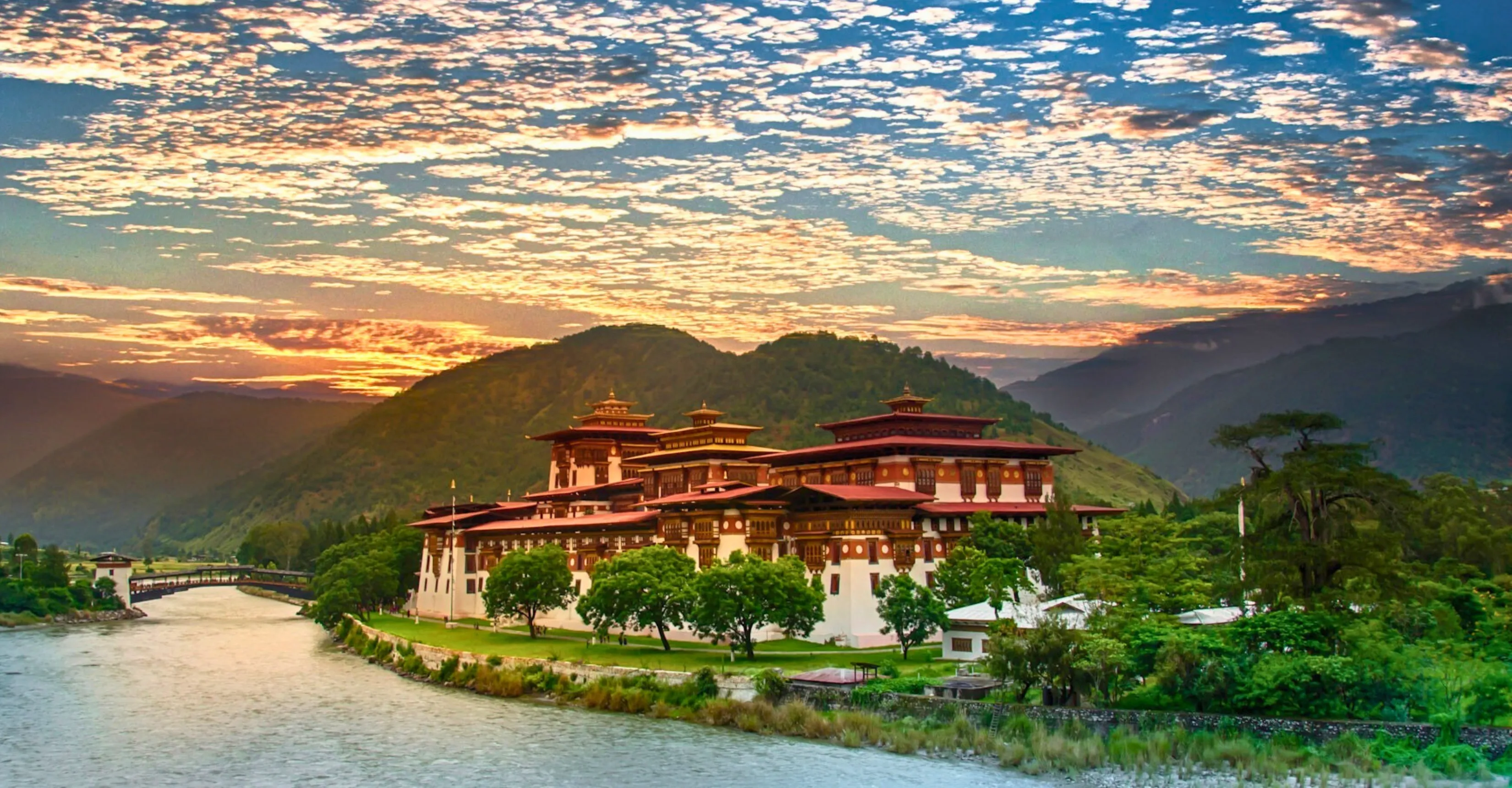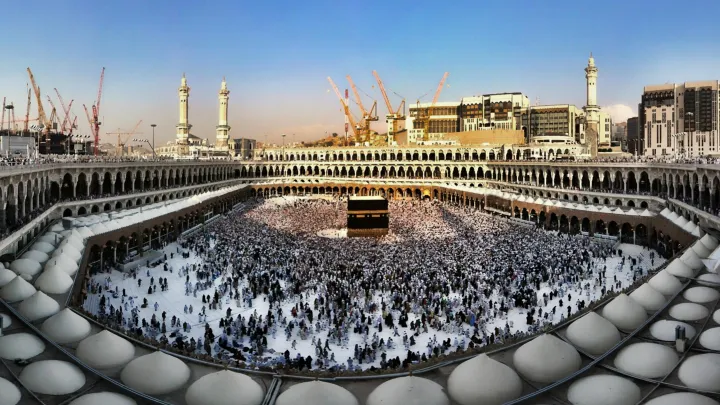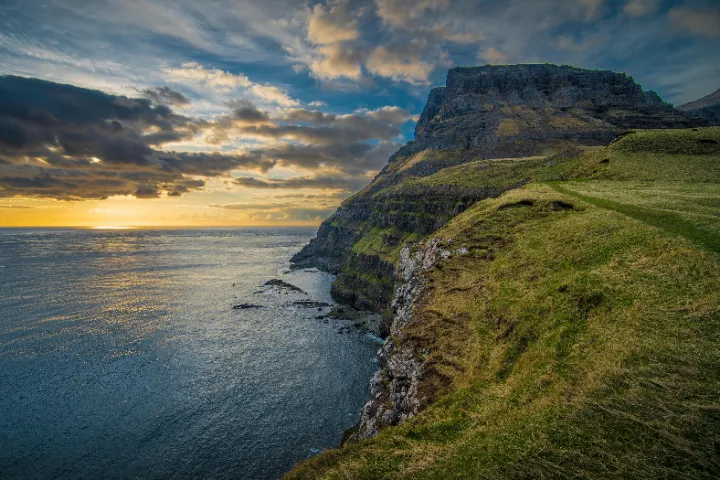The Peace Destinations
Oct 17 • 6 min read
A Country That Measures Success in Smiles
The Real Reasons Behind Bhutan’s Peace
1. Gross National Happiness: A Different Kind of Progress
3. Strong Cultural Roots and Spiritual BalanceBuddhism plays a major role in Bhutanese life. Colourful prayer flags flutter across mountain passes, and monasteries stand quietly on cliffs. The faith teaches compassion, mindfulness, and respect for all living beings.Monks and ordinary people alike start their day with prayer and reflection. This focus on inner peace helps keep the whole society grounded and gentle, and it explains a lot about why Bhutan is so happy as a nation.Festivals like Paro Tsechu are joyful celebrations filled with music, dance, and laughter. Even during big events, there’s no rush or noise — just harmony and togetherness. It is this balance that makes many visitors believe they are standing in the happiest place on earth Bhutan has quietly protected.
4. Leadership That Values Humility
Bhutan’s royal family are deeply respected for their simple lifestyle and focus on the people’s happiness. When the fourth king handed power to his son in 2006, he did it peacefully — a rare act in modern politics.The fifth king, Jigme Khesar Namgyel Wangchuck, continues that legacy. He walks among the people, talks with farmers, and helps shape a modern yet peaceful Bhutan. This kind of leadership answers another common question people ask: is Bhutan a good place to live? A country where leaders serve quietly rather than rule loudly usually is.
5. A Thoughtful Approach to TourismBhutan doesn’t open its borders to mass tourism. Visitors must pay a Sustainable Development Fee (SDF), which supports the country’s environment and local communities.This system keeps visitor numbers low and helps protect Bhutan’s culture. It means that when you travel there, you experience an untouched landscape and genuine kindness. It’s not just a holiday — it’s a lesson in balance, patience, and simplicity. Many travellers leave believing they have just visited the Bhutan happiest place on earth they had only read about before.
What Makes Bhutan Feel So Different
Picture standing at the edge of Tiger’s Nest Monastery, watching clouds drift over the Paro Valley. The air feels light, prayer flags wave softly, and below, the world seems far away. That’s Bhutan — a place that many call the Bhutan happiest destination they have ever seen.
Everywhere you go, people smile genuinely. Villagers invite strangers for tea. Children walk to school surrounded by green hills. Even the streets of Thimphu, the capital, move at an easy pace. It becomes clear why people often label it the Bhutan most happy country in Asia.Bhutan’s beauty isn’t just in its mountains or monasteries; it’s in its mindset. The people believe that happiness isn’t something to find; it’s something you nurture. They care for their land, respect traditions, and help one another.For travellers, this creates something rare: an experience that touches your heart, not just your camera. If you’ve ever felt lost in the noise of modern life, Bhutan feels like a quiet voice reminding you what truly matters.That’s why so many describe visiting Bhutan as a kind of inner journey — one that stays with you long after you return home.
How to Experience Bhutan’s Peace for Yourself
If you’re thinking of visiting Bhutan, here’s how to make the most of your trip and respect its peaceful spirit.
1. Visit Mindfully
Bhutan values responsible tourism. Plan your trip with a licensed tour operator who supports local communities. The SDF fee helps fund education, healthcare, and environmental projects.2. Best Time to VisitThe best months are March to May and September to November, when the weather is mild and the skies are clear. Spring brings blooming rhododendrons, while autumn offers stunning mountain views.
3. Explore with RespectWhen visiting monasteries or villages, dress modestly and greet locals with a smile. Photography may be restricted in sacred places, so always ask first.
4. Don’t Rush
Bhutan isn’t about ticking off sights; it’s about feeling them. Spend time walking through valleys, talking to monks, or simply watching the sunset over Punakha Dzong.
5. Try Local ExperiencesTaste ema datshi (a spicy chilli and cheese dish), try archery (Bhutan’s national sport) or stay in a farm guesthouse to learn about daily life. These small experiences make your trip meaningful and memorable.
FAQs
1. Why is Bhutan called the world’s most peaceful country?
Because of its strong focus on happiness, environmental care, and spiritual life. Bhutan values wellbeing and harmony more than material wealth.
2. Is Bhutan really carbon negative?
Yes. Bhutan absorbs more carbon dioxide than it emits, thanks to its vast forests and strict
conservation laws.3. What is Bhutan’s happiness index?
The Gross National Happiness (GNH) index measures well-being through factors like culture,
health, and environment instead of economic output.
4. Is Bhutan safe for tourists?
Absolutely. Crime rates are extremely low, and the people are kind and welcoming. It’s one of the
safest destinations for solo or family travel.
5. What makes Bhutan different from other Himalayan countries?
Unlike its neighbours, Bhutan limits mass tourism and focuses on sustainability and happiness,
keeping its traditions and landscapes beautifully preserved.
Because of its strong focus on happiness, environmental care, and spiritual life. Bhutan values wellbeing and harmony more than material wealth.
Yes. Bhutan absorbs more carbon dioxide than it emits, thanks to its vast forests and strict conservation laws.
The Gross National Happiness (GNH) index measures well-being through factors like culture, health, and environment instead of economic output.
Absolutely. Crime rates are extremely low, and the people are kind and welcoming. It’s one of the safest destinations for solo or family travel.
Unlike its neighbours, Bhutan limits mass tourism and focuses on sustainability and happiness, keeping its traditions and landscapes beautifully preserved.
Conclusion
Bhutan isn’t peaceful because it’s hidden away in the mountains. It’s peaceful because its people
choose to live differently. They protect nature, value kindness, and believe happiness is a shared
goal.
It’s all up to you when you visit, but the best time is between March and May or September and
November, when Bhutan’s beauty shines brightest.
Whether you go for the mountains, the monasteries, or the simple warmth of its people, Bhutan will
leave you quieter inside — and that’s the kind of peace worth travelling for.
Bhutan isn’t peaceful because it’s hidden away in the mountains. It’s peaceful because its people choose to live differently. They protect nature, value kindness, and believe happiness is a shared goal.
It’s all up to you when you visit, but the best time is between March and May or September and November, when Bhutan’s beauty shines brightest.
Whether you go for the mountains, the monasteries, or the simple warmth of its people, Bhutan will leave you quieter inside — and that’s the kind of peace worth travelling for.




